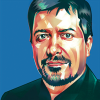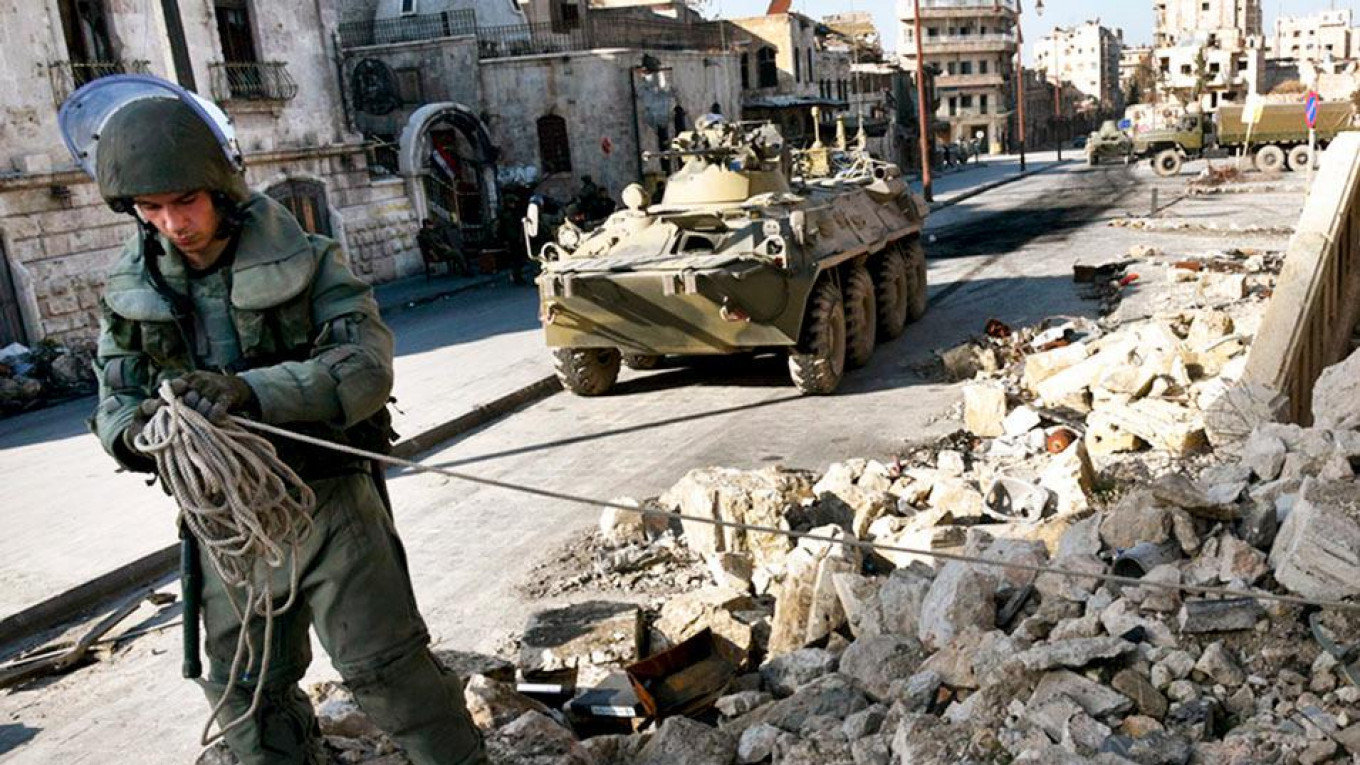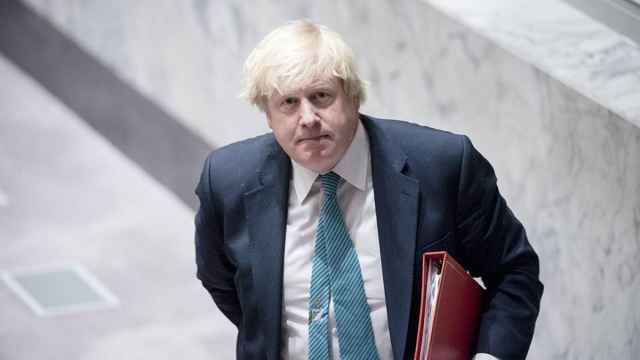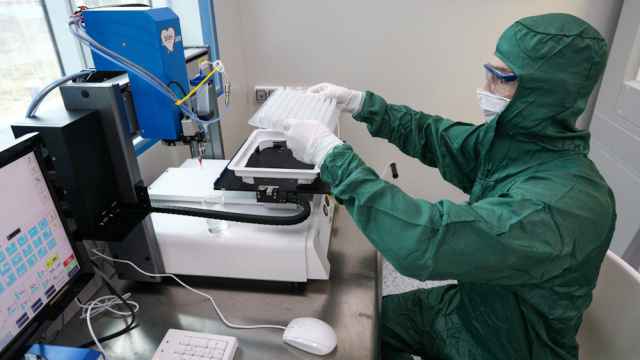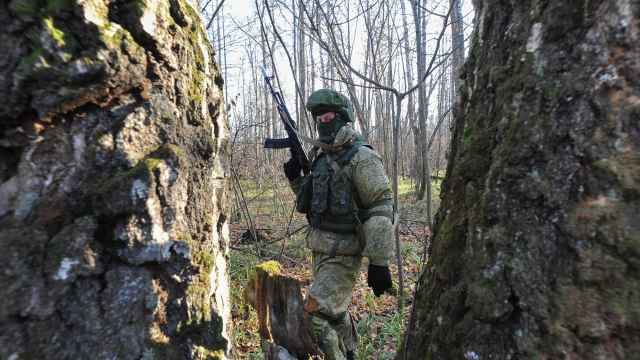When confronted with evidence of Russian citizens fighting with the Syrians or against Ukrainians or trolling American voters ahead of an election Russia’s official response is: those are private citizens, they have no military rank, they are traveling at their own risk, they are enthusiastic about what they do.
"Hackers are free people like artists... They got up today and read that something is going on internationally. If they are feeling patriotic they will start contributing, as they believe, to the justified fight against those speaking ill of Russia. Is that possible? In theory, yes. At the government level, we never engage in this. This is what is most important."
This is the response President Vladimir Putin offered when asked, in May 2017, about the possibility of Russian hackers trying to influence an election in Germany.
Putin is not just taking potshots at a journalist here. He is choosing his words carefully and is pointing out something he actually considers important: There is a legal boundary between an official government project and a private effort, whatever the connection between two.
Russia’s security services have traditionally co-opted private individuals who engage in illegal or semi-legal activities. According to Andrei Soldatov, co-author of the book "The Red Web," the FSB (the Russian secret police) has cooperated with hackers since the early 2000s, when a group of students helped authorities in shutting down a website associated with Chechen separatists.
The practice has never been discontinued. "Today, the Kremlin-backed cyber campaigns have an unorthodox chain of command. It is one in which non-state actors call the shots," Soldatov writes.
Russia’s projects that engage non-state actors are highly visible and politically important, which, to me, is an indication that the Kremlin’s private-public partnership is not a bug but a feature. Moscow has been consistently deploying non-state groups not only to avoid bureaucratic procedures and accountability that the state, even in Russia, provides for, but also to create plausible deniability.
Konstantin Malofeyev, 43, a well-connected Moscow businessman who made his fortune in private equity, has been linked to pro-Russia political and military leaders in eastern Ukraine. A maverick Christian Orthodox activist, with connections with the European far-right and American conservative evangelicals, Malofeyev supported the Kremlin’s Russian World rhetoric.
Allegedly, he did it not just verbally but by providing, in 2014 and 2015, funding and operational leadership both in Crimea and eastern Ukraine, which was the reason why the European Union placed him on its sanctions list.
Malofeyev’s one-time contractor, the conservative commentator and PR specialist Alexander Borodai, was for a few months "prime minister" of the proto-state Donetsk People’s Republic.
Yevgeny Prigozhin, the alleged bankroller of manipulation and disinformation campaigns in the run-up to the 2016 presidential election in the U.S., is similarly placed. Prigozhin, who was last week indicted on charges of engaging in operations to interfere with U.S. elections and political processes, is not a government employee and all evidence of his ties to the Russian state and Putin personally is circumstantial.
Prigozhin has also been linked to the Wagner Group, a private military contractor believed to be training at a base in southern Russia and operating in Syria. The caterer and restaurant-owner Prigozhin made a fortune in 2010s sourcing food orders for St. Petersburg and Moscow schools as well as for the Russian Army.
Prigozhin has been nicknamed "Putin’s chef" because in the 1990s and early 2000s Putin often dined at Prigozhin’s eateries. But whatever the conditions were put forward for Prigozhin to pocketing all those army contracts it was not just the quality of his cookery that counted.
He had to provide some important services to the state. Funding and running private military companies or a "troll factory" mentioned in the indictment just might have been such services.
One consistent development throughout the Putin years has been a slow but sure change in how the Kremlin viewed private property. Owning property was getting more and more contingent on the owner’s utility to the state. Each fortune’s story was different, which is why each arrangement was different.
Some of the older oligarchs (most of them rather young), including Roman Abramovich and Mikhail Prokhorov, would act as patrons of entire regions or industries and manufacturing facilities in distress. Keeping old Soviet factories afloat prevented creative destruction from kicking in but it surely kept a measure of social peace.
The workers had jobs and did not travel to Moscow to protest as they did throughout the 1990s. For those who became richer during the Putin years the arrangement should have been clear from the start. They would be given fat government contracts but expected to made their resources available to whatever causes that are on the Kremlin’s mind right now.
Arkady Rotenberg, dubbed by the Forbes Russia magazine "the king of state orders," was almost an inevitable choice to lead a costly and demanding project of building a bridge linking the illegally occupied Crimea to the Russian mainland.
Rotenberg, who was Putin’s childhood sparring partner in judo and kept a close friendship for years, benefited from buying up companies that serviced Gazprom. Now it was Rotenberg’s turn to lend a hand. He became a target of international sanctions but still managed to build a bridge.
A major trade-off must be underlying Putin’s thinking about exclusive and trusted private contractors doing his bidding. Exclusive deals may corrupt his friends but the urgency of those delicate tasks apparently still beats those inevitable losses in Putin’s mind.
The state is a big machine with its long-planned budgets, cumbersome bureaucracy and—even in Russia—some inbuilt transparency and accountability standards. This is why Putin has built around himself an alternative "state" whose building blocks are non-state actors owing their wealth and allegiance to the president personally.
Maxim Trudolyubov is a senior fellow with the Kennan Institute, where this article was originally published. The views and opinions expressed in opinion pieces do not necessarily reflect the position of The Moscow Times.

A Message from The Moscow Times:
Dear readers,
We are facing unprecedented challenges. Russia's Prosecutor General's Office has designated The Moscow Times as an "undesirable" organization, criminalizing our work and putting our staff at risk of prosecution. This follows our earlier unjust labeling as a "foreign agent."
These actions are direct attempts to silence independent journalism in Russia. The authorities claim our work "discredits the decisions of the Russian leadership." We see things differently: we strive to provide accurate, unbiased reporting on Russia.
We, the journalists of The Moscow Times, refuse to be silenced. But to continue our work, we need your help.
Your support, no matter how small, makes a world of difference. If you can, please support us monthly starting from just $2. It's quick to set up, and every contribution makes a significant impact.
By supporting The Moscow Times, you're defending open, independent journalism in the face of repression. Thank you for standing with us.
Remind me later.

